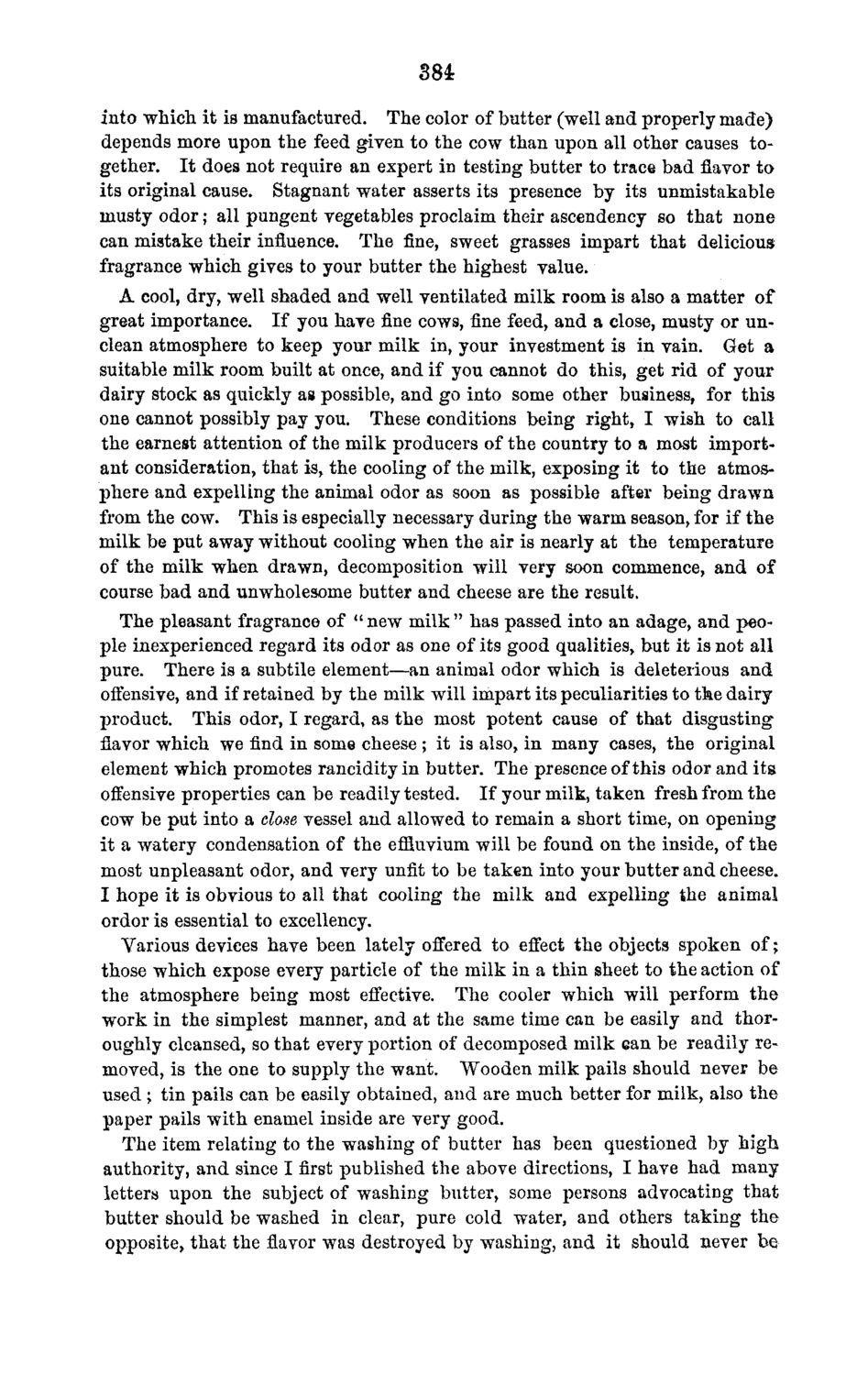| |
| |
Caption: Board of Trustees Minutes - 1870
This is a reduced-resolution page image for fast online browsing.

EXTRACTED TEXT FROM PAGE:
384 into which it is manufactured. The color of butter (well and properly made) depends more upon the feed given to the cow than upon all other causes together. It does not require an expert in testing butter to trace bad flavor to its original cause. Stagnant water asserts its presence by its unmistakable musty odor; all pungent vegetables proclaim their ascendency so that none can mistake their influence. The fine, sweet grasses impart that delicious fragrance which gives to your butter the highest value. A cool, dry, well shaded and well ventilated milk room is also a matter of great importance. If you have fine cows, fine feed, and a close, musty or unclean atmosphere to keep your milk in, your investment is in vain. Get a suitable milk room built at once, and if you cannot do this, get rid of your dairy stock as quickly as possible, and go into some other business, for this one cannot possibly pay you. These conditions being right, I wish to call the earnest attention of the milk producers of the country to a most important consideration, that is, the cooling of the milk, exposing it to the atmosphere and expelling the animal odor as soon as possible after being drawn from the cow. This is especially necessary during the warm season, for if the milk be put away without cooling when the air is nearly at the temperature of the milk when drawn, decomposition will very soon commence, and of course bad and unwholesome butter and cheese are the result. The pleasant fragrance of " new milk " has passed into an adage, and people inexperienced regard its odor as one of its good qualities, but it is not all pure. There is a subtile element—an animal odor which is deleterious and offensive, and if retained by the milk will impart its peculiarities to the dairy product. This odor, I regard, as the most potent cause of that disgusting flavor which we find in some cheese ; it is also, in many cases, the original element which promotes rancidity in butter. The presence of this odor and its offensive properties can be readily tested. If your milk, taken fresh from the cow be put into a close vessel and allowed to remain a short time, on opening it a watery condensation of the effluvium will be found on the inside, of the most unpleasant odor, and very unfit to be taken into your butter and cheese. I hope it is obvious to all that cooling the milk and expelling the animal ordor is essential to excellency. Various devices have been lately offered to effect the objects spoken of; those which expose every particle of the milk in a thin sheet to the action of the atmosphere being most effective. The cooler which will perform the work in the simplest manner, and at the same time can be easily and thoroughly cleansed, so that every portion of decomposed milk can be readily removed, is the one to supply the want. Wooden milk pails should never be used ; tin pails can be easily obtained, and are much better for milk, also the paper pails with enamel inside are very good. The item relating to the washing of butter has been questioned by high authority, and since I first published the above directions, I have had many letters upon the subject of washing butter, some persons advocating that butter should be washed in clear, pure cold water, and others taking the opposite, that the flavor was destroyed by washing, and it should never be,
| |